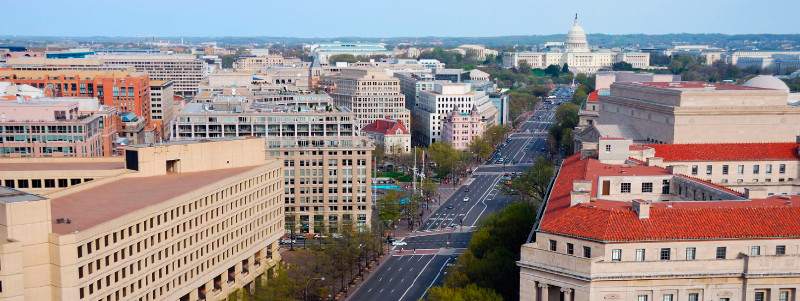
Washington, DC is a popular destination for tourists, political, and business travelers alike; and the trend is increasing for visitors to seek home-away-from-home accommodations rather than hotels while traveling. The City Council is working on legislation to regulate short-term rentals booked through sites such as Airbnb and VRBO. Home to over 680,000 permanent residents, the city is in the throes of a housing shortage that is exacerbated when housing units are turned from potential long-term residences to venues for short-term stays.
Many DC homeowners and renters took advantage of vacation rental sites as a quick income source when the lodging demand for high-traffic events, such as the recent presidential inauguration and the Women’s March on Washington, strained hotel capacity. Over 15,000 guests used Airbnb that weekend alone, a record high for the home sharing service. Some property owners were able to charge an average of $1,088 per night.
The area City Council recognizes both the right of the individual homeowners to profit from space in their home and the periodic need for temporary lodging, while trying to grapple with providing long-term housing. As D.C. Council member Kenyan R. McDuffie states the problem, “Demand is much higher than supply, and when you turn an apartment building into a de facto hotel, it has a deleterious ripple effect on the District housing stock.”
What’s Ahead For Airbnb And Other Short Term Rental Suppliers In D.C.
Legislation already on the books requires a business license for homeowners and tenants, but current laws are vague and unenforceable. The new legislation would require a short-term rental license with a number that a host must provide to rental platforms such as Airbnb and allow whole house rentals of up to 15 days per year. It would not impact rental of a room, but restricts host to advertising for only one address.
The new law is aimed at commercial operators who buy out properties as investments and rent them out exclusively for short-term rentals which take them off the market for permanent residents and drive up prices on other property in the region. Since Airbnb is considered to be a good corporate citizen who provides a valuable service to military personnel, government and corporate employees in D.C. on short-term assignments, as well as an abundance of annual tourists, the law is intended to regulate, not prevent, short-term rentals.
To add teeth to the regulations, violators could be charged a $1,000 fine for the first infraction and up to $7,000 for subsequent violations, while Airbnb would be penalized $1,000 for each. Half of the proceeds from the fine would be used to fund low-income housing in the District.
As the city continues to debate this legislation, landlords who prohibit subletting can find tenants in violation of their lease by using monitoring services.
